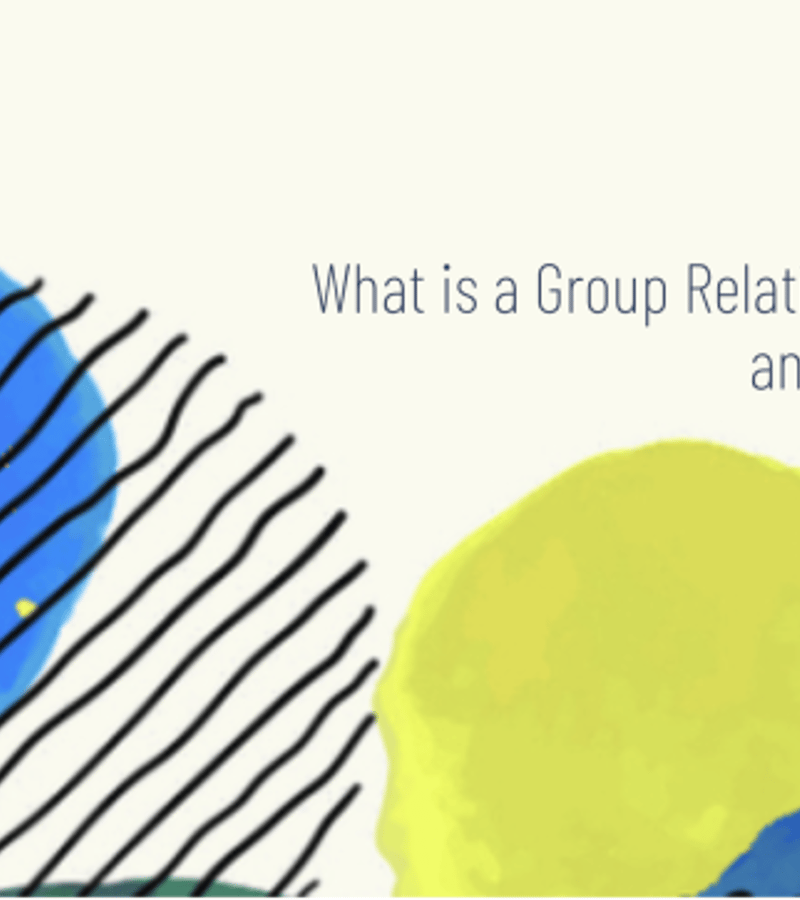What is a Group Relations Conference (GRC) and why is it important?


Dr Brigid Nossal
This is the first of a series of short blogs exploring NIODA’s forthcoming Group Relations Conference title, ‘Authority, Role and Distributed Leadership in the Hybrid Organisation: the challenge of transformation’.
First, what is a Group Relations Conference (GRC) and why is it important for leaders, managers, and anyone interested in organisational life to attend one?
A Group Relations Conference is a unique opportunity to learn from experience about yourself, groups and organisational dynamics. Generally, our work days are so filled with meetings and the pressures of work there is no time to stop and consider some fundamental questions such as, what’s really going on here? How am I showing up as a leader and follower? Are we working to purpose and, if not, what is getting in the way? The GRC is an opportunity to pause and explore some of these questions in depth.
The GRC is a temporary learning institution. I think of it as an incubator for in-depth exploration of contemporary organisational life. Members and staff bring with them into the conference their experiences and often hidden assumptions about organisations, work teams, and how authority and leadership are exercised. We also bring less conscious, habitual ways of behaving and taking up roles. In the GRC, without the distraction of day-to-day work tasks, it is possible to learn about these hidden assumptions both in oneself and in others. We also have the chance to try out different ways of taking up leadership within a group and within the temporary learning organisation as a whole.
In the GRC, members and staff are a bit like anthropologists or ethnographers. Together, we work on the conference task and we immerse ourselves in the co-creation of the temporary learning organisation. At the same time, we study what is happening, as it happens, to discover what it reveals about organisational life. The task of this conference is:
With a spirit of enquiry, to explore and study the exercise of authority and leadership in the taking up of roles through the interpersonal, intergroup and institutional relations that develop within the conference as an organisation in its wider context.
The title of the conference will also influence how we go about the task. As the conference will take place in a hybrid format, we can study how this impacts interpersonal, group and intergroup dynamics. We can then consider what this means for our back-at-work context and how we might apply this learning. The reference to distributed leadership is also an invitation to explore. It is a concept that has been used a lot in leadership and management circles over the past 15-20 years, but what does it mean in practice, especially in the context of a hybrid workplace?
This GRC is designed in the Tavistock tradition. It was invented by a multidisciplinary team in post-war London in the late 1950s and has been evolving ever since. These days, GRCs are held all over the world and attended by many senior leaders. One reason for this is that GRCs are a highly efficient way for people to learn in-depth about group and organisational dynamics and the influence that unconscious processes can have in shaping organisational life.
The conference design is an inspired innovation; the temporary learning organisation is highly structured and contained, which at the same time allows for maximum freedom of expression and shared exploration. Past participants have described having learned more from a five-day conference than they learned in three years of an MBA. One organisational leader who attended a GRC at the beginning of his tenure as CEO credited the experience with laying the foundation for his success over a 30-year leadership career.
It is difficult to write about this upcoming GRC in concrete terms because it has not yet taken place. What I can say with certainty is that if you are a curious, courageous, and open-minded person with an appetite to be stimulated and stretched, both intellectually and emotionally, then this conference is not to be missed. Be prepared to learn deeply about organisational dynamics and maybe even be transformed by the experience. You can learn more here.
Dr Brigid Nossal
June 2023
What is a Group Relations Conference (GRC) and why is it important?
ps NIODA’s forthcoming Group Relations Conference is 30 October – 3 November 2023. This is a hybrid event both onsite in Melbourne and live interactive online. Scroll to read more…
What is a Group Relations Conference (GRC) and why is it important?
What is the big deal
about Authority?
Why is the idea of 'Role' important?
Distributed leadership - are we up for it?
What is a Group Relations Conference (GRC) and why is it important?

Dr Brigid Nossal
NIODA Group Relations Conference Director
Brigid is a co-founder and Director at NIODA. She combines academic teaching, research and supervision with consulting to organisations. For the past 20 years, systems psychodynamics and Group Relations Conferences have been central to her work. She has worked on many GRCs in Australia, the UK, China and India. Brigid directed the 2017 NIODA GRC on the theme, Leadership, Authority and Organisation: exploring creative disruption. Brigid is also a member of GRA and ISPSO.
Related insights

Leading from the Middle: Power, Reality, and the Courage to Work Together
What if the real power in your organisation sits in the middle — but goes unused? Mark Carney's recent Davos speech on middle powers sparked a reflection on something we see repeatedly: middle leaders orient up and down the hierarchy, but rarely sideways. Yet the middle holds unique potential to integrate, coordinate, and strengthen the whole system.

Reflections on completing a Masters

Revelation, Not Salvation
Salvation is about being rescued from difficulty. It’s the quick fix, the ready-made model, the externally imposed solution. Revelation, on the other hand, is about discovery.
